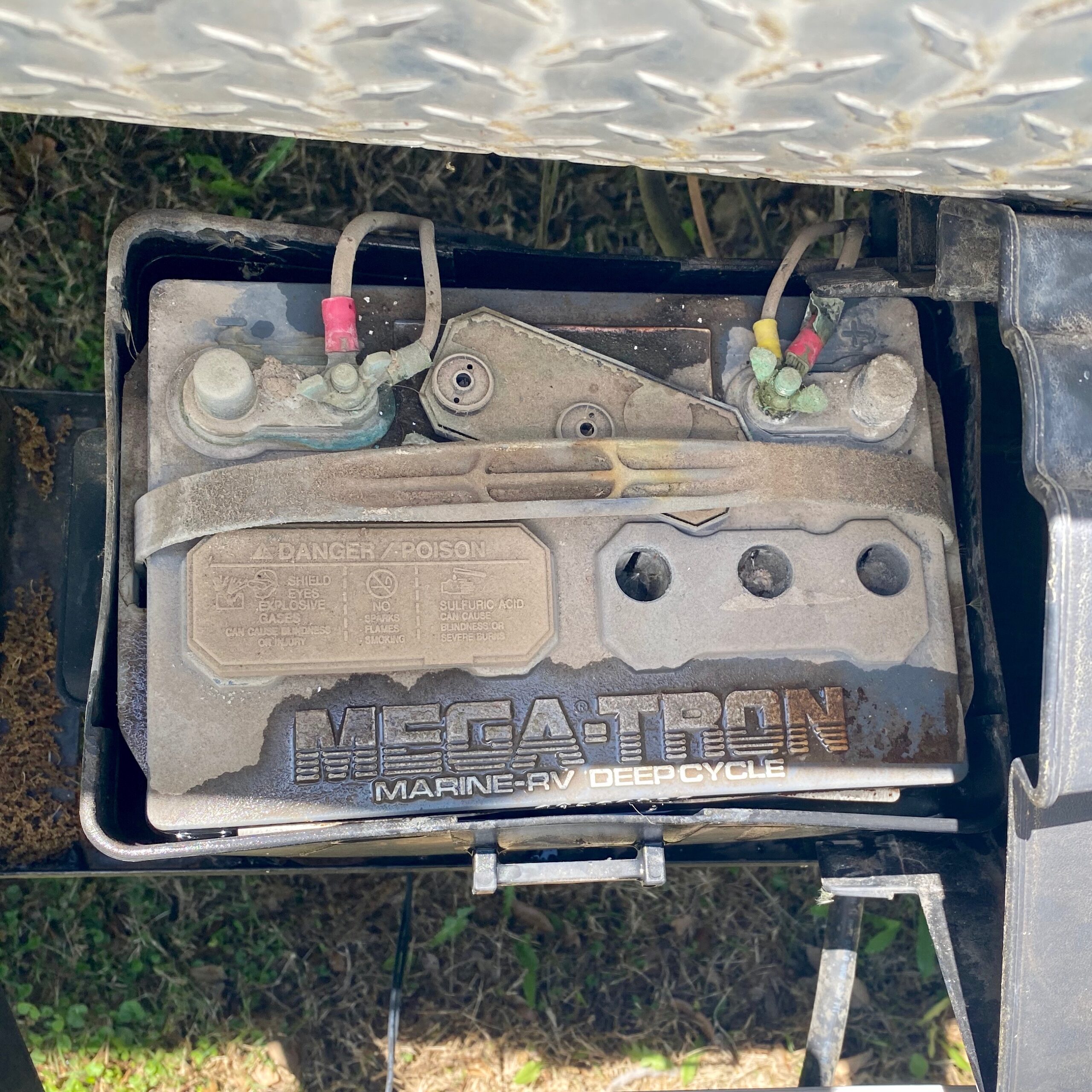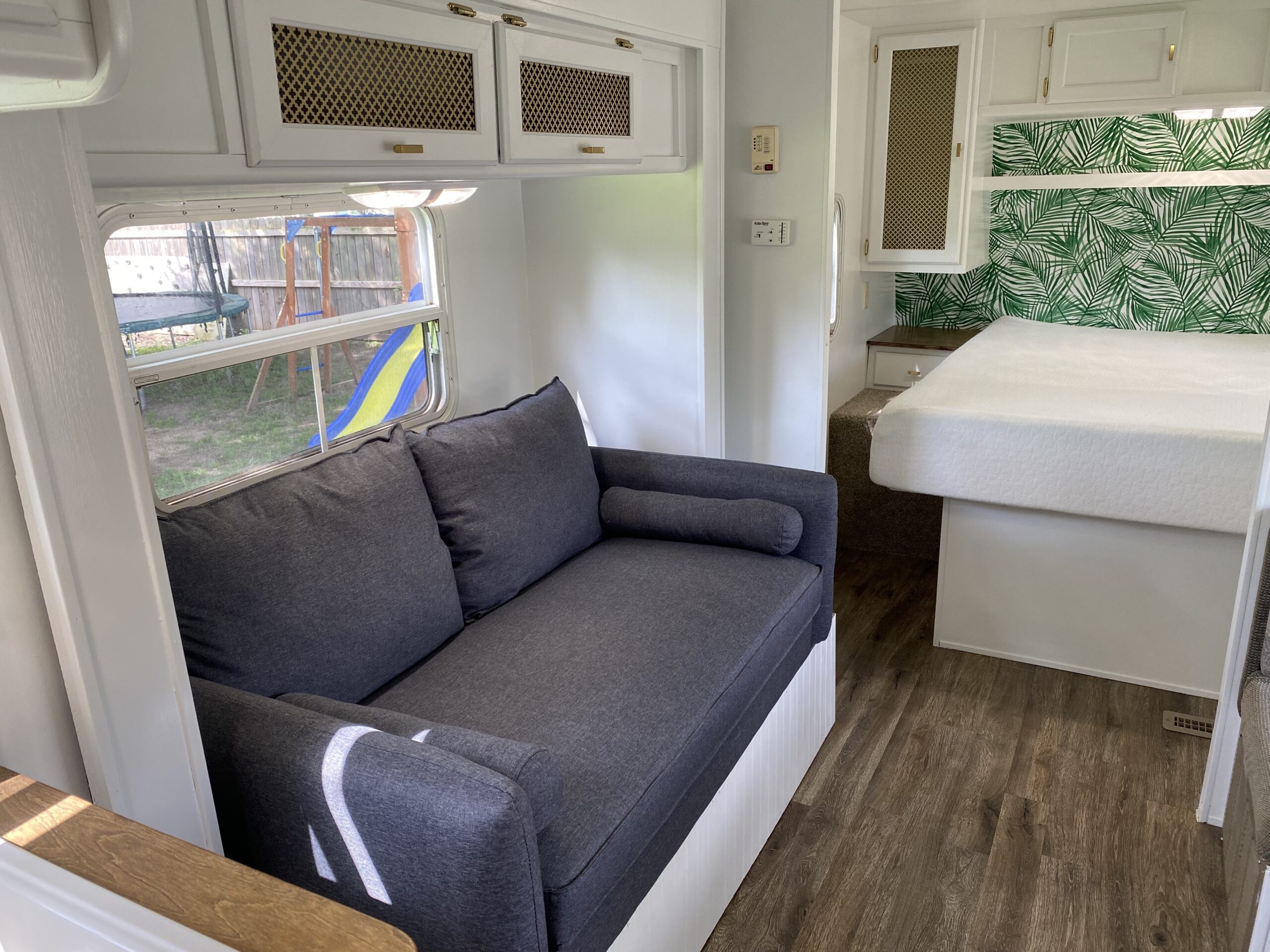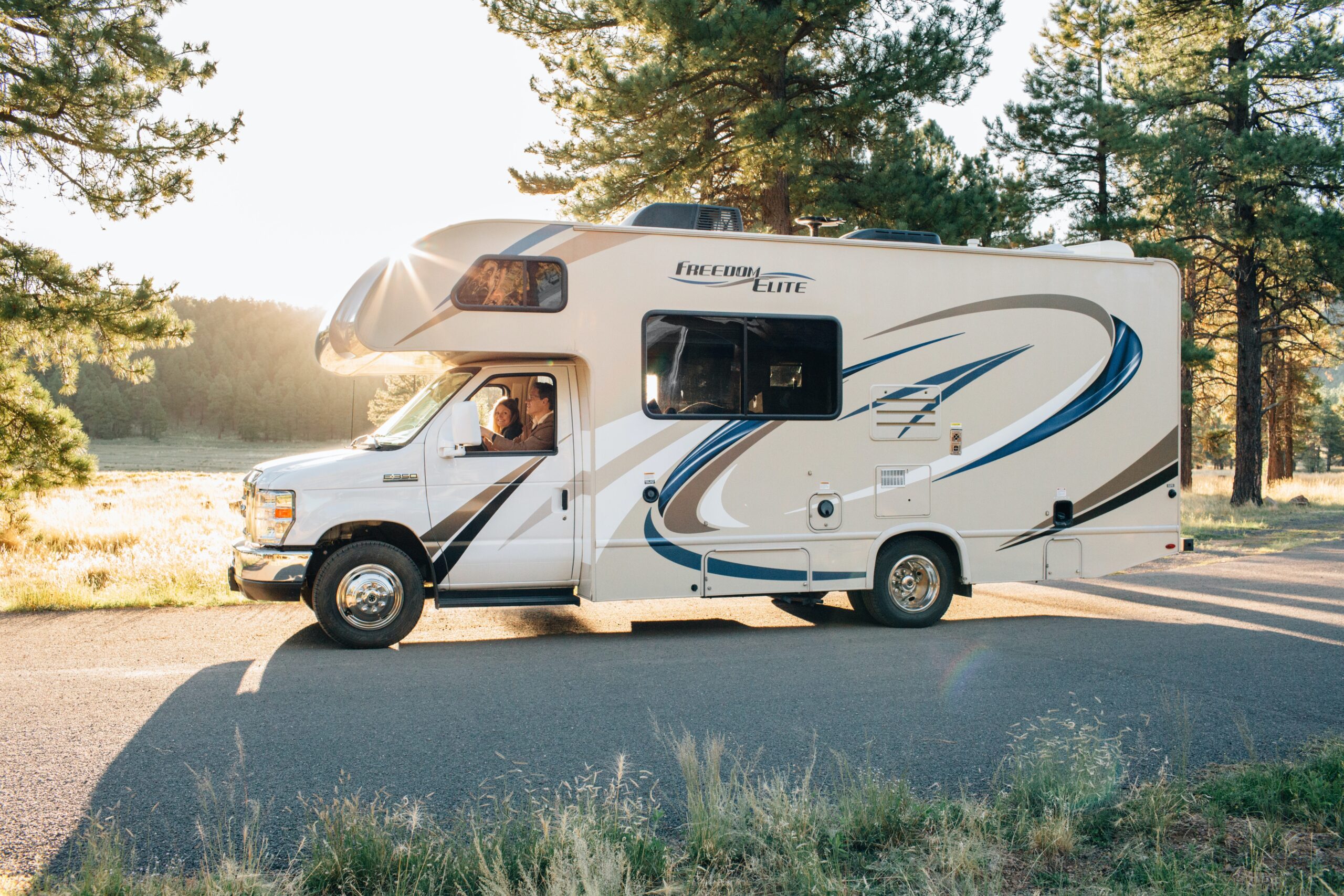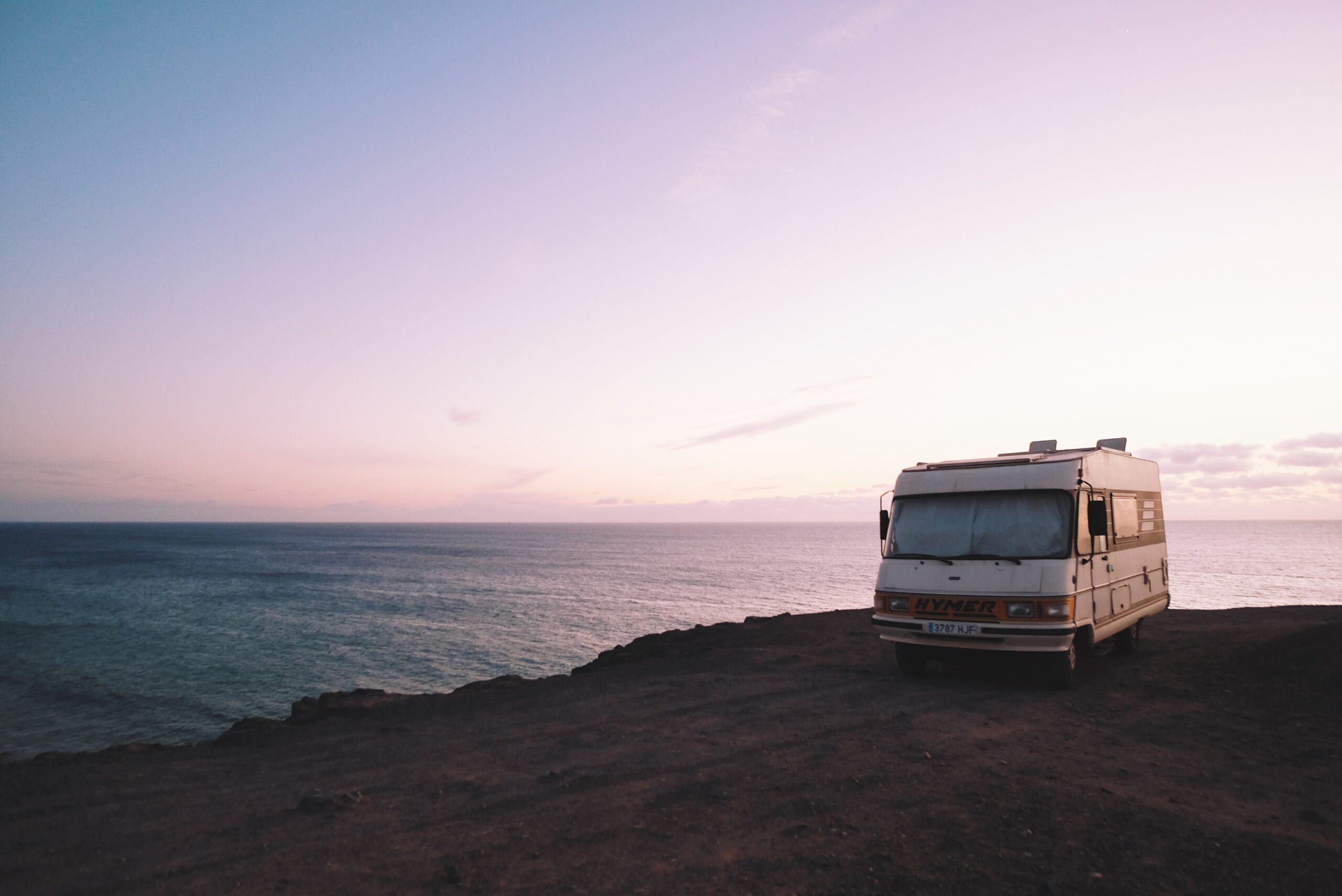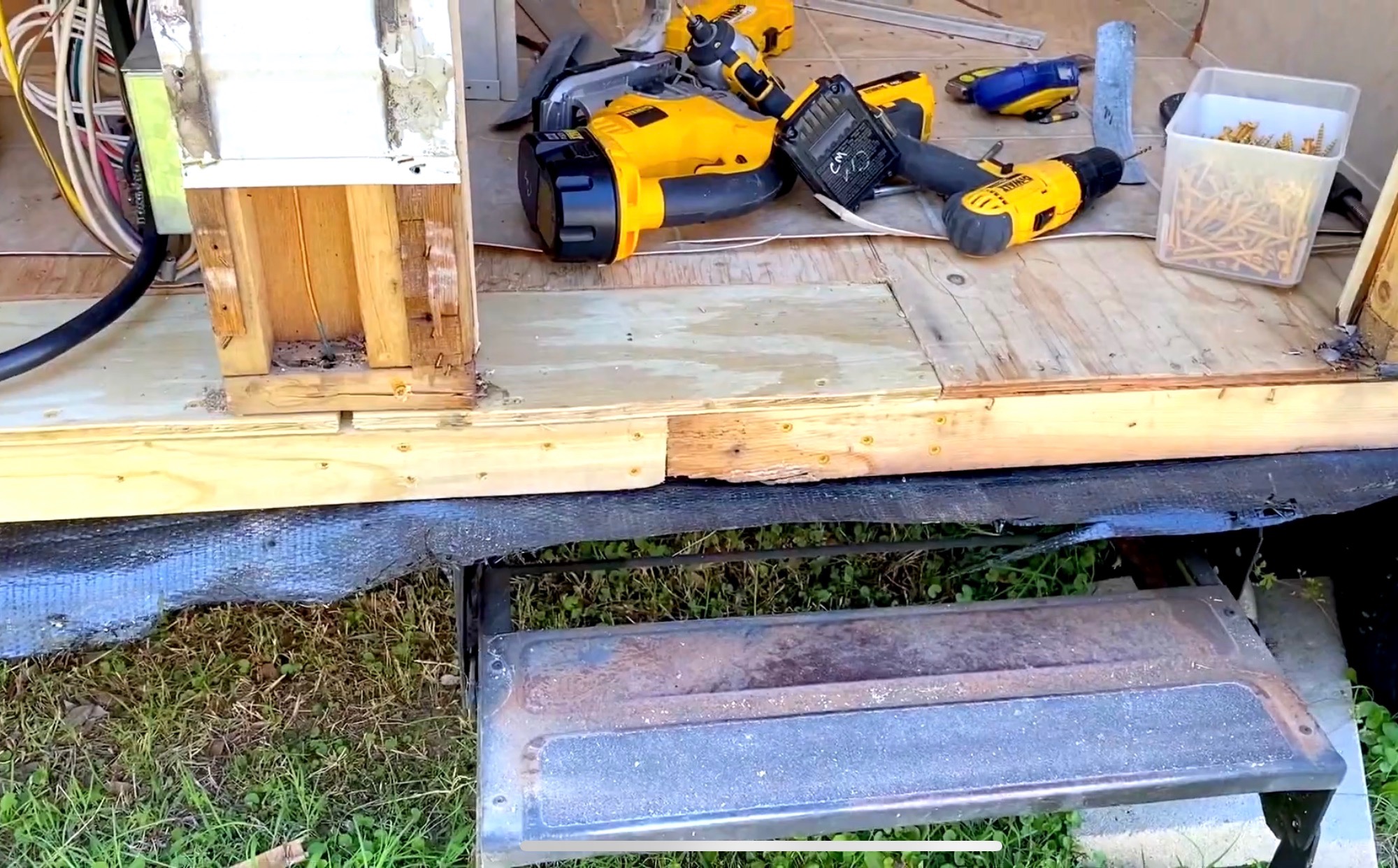What is an RV House Battery?
An RV Camper house battery is the battery or batteries that supply 12-volt power to your rig. They power things like your lights, refrigerators, slideouts, and other 12-volt applications.
A house battery is not to be confused with a starting battery. Starting batteries are made for just that…providing short bursts of big power for starting an engine.
House batteries should be deep cycle batteries that can provide long, sustained power. They are also made to handle the rigors of repeatedly charging and discharging.
Do not confuse these with marine batteries or other batteries that are designed to provide starting or cranking power.
In regards to house batteries, you will typically see one 12-volt battery or two 6-volt batteries being used.
For this article, we are going to be discussing single, 12-volt applications. We will go into 6-volt batteries as a follow up.
How long do RV Camper batteries last?
If you maintain your batteries properly, you can expect upwards of 6 years or more of usage.
However, battery life depends on a lot of factors like maintenance, usage, storage, charge/discharge cycles, etc. All of these factors, combined with battery type help determine your battery’s longevity.
While 6 years may seem optimistic to some folks, it is not that uncommon. Unfortunately, numbers as low as 2 years are not that uncommon either, mainly due to improper maintenance.
Can I use a marine battery in my RV Camper?

Yes, technically you can use a marine battery in your RV, but it is not the optimal choice. You may save some money in the short term, but you will be replacing them more frequently and they don’t perform as well.
So, while you can do it, I wouldn’t recommend it unless you have no other choice. Use the recommended battery type and avoid additional heartache down the road.
How do I choose an RV Camper battery?
Well, it doesn’t take a battery expert to assume that higher Reserve Capacity (RC) or Amp-Hours (Ah) equates to a better performing battery. Amp-Hours is the measurement that is commonly used, but Reserve Capacity is becoming more common.
Amp-Hours is a measurement of electric charge and equates to a steady flow of one amp per hour.
Reserve Capacity is how many minutes a charged battery can discharge at 25 amps and stay above 10.5 volts. This should be conducted at 80 degrees fahrenheit to get consistent numbers.
So with either of these measurements, the higher the number, the more run time they battery will provide. That doesn’t mean more power, just longer use.
These numbers will help you choose a battery that will fit your intended use.
What is the best RV Camper battery (12-volt deep cycle) to buy?
If you are in the market for a new deep cycle battery for your RV or camper trailer, the options can be a little overwhelming. Hopefully, we can help you out a little by offering a few solid choices for you to check out.
As with anything, opinions vary, so be sure to do your research and make sure whatever you buy fits your needs and applications. Batteries can be a large investment and you want to make sure you get one that will serve you well.
Let’s get going.
Renogy Deep Cycle Agm Battery 12 Volt 200AH

This battery is a beast, both in performance, size, and weight. AGM manufacturing helps to solve issues with maintenance and acid leakage. It has a super low self discharge rate and works well at low temps.
This battery is a solid option when it comes to extending your time away from services.
Specs
- Ah: 200 Ah
- Dimensions (LxWxH): 20.6″ x 9.4″ x 8.8″
- Weight: 127.9 lbs.
- Warranty: 2-year material warranty
- Price: $477
Weize 12V 100AH Deep Cycle

This battery is a 12-volt 100Ah hour sealed lead acid (SLA) deep cycle. With particular battery you get a good bang for your buck. However, some folks have complained these are actually 50 Ah after personally testing.
That being said, people have good reports in regards to performance versus value.
Specs
- Ah: 100 Ah
- Dimensions (LxWxH): 12.05″ x 6.65″ x 9.17″
- Weight: 60 lbs.
- Warranty: 30-day refund policy and 1 Year Warranty
- Price: $175
Optima 8016-103 D34M

Keep in mind, this battery is a marine battery, meaning it can also be used as a starting battery in addition to deep-cycle capabilities. Meaning, you will be sacrificing a little compared to a true deep-cycle “non-marine” battery.
However, if you want a multi-purpose, jack-of-all-trades battery, this is a solid choice. It offers 750 cold-cranking amps and 870 cranking amps. It can be mounted in multiple positions and offers added protection against vibration.
Specs
- Ah: 55 Ah
- Dimensions (LxWxH): 10″ x 6 7/8″ x 7 13/16″
- Weight: 43.5 lbs.
- Warranty: 2 Year Warranty
- Price: $277
Universal Power Group 12V 100Ah

This battery is another solid choice on the cheaper end of the price range. It’s an AGM, maintenance-free design touting a lifespan of 3-5 years.
When the UB121000 is charged, no hazardous fumes escape the battery case, gases are processed within the battery itself. This is one less thing to worry about when RVing.
Specs
- Ah: 100 Ah
- Dimensions (LxWxH): 12.67″ x 6.61″ x 9.16″
- Weight: 64 lbs.
- Warranty: 1 Year Warranty
- Price: $165
WindyNation 100Ah

Another AGM battery, the WindyNation is a 100Ah, HD Deep Cycle option. It offers repetitive charging capabilities with a low discharge rate.
The sealed, maintenance-free design allows it to safely be used in numerous applications. As a bonus, this battery is accompanied by terminal bolts, washers, carry handle, and insulated terminal boots.
Specs
- Ah: 100 Ah
- Dimensions (LxWxH): 13″ x 6.8″ x 8.7″
- Weight: 67 lbs.
- Warranty: 1 Year Warranty
- Price: $190
Best RV Battery for Boondocking
Battle Born LiFePO4 Deep Cycle Battery

If you want to be sure you have a quality battery for boondocking, you shouldn’t be afraid of spending a little money to get something you can depend on.
If that is what you are considering, you should look at the Battle Born LiFePO4 100 Ah Deep Cycle. This battery is right around $950, but it loaded with features and a solid warranty.
It has a built-in battery management system that regulates the amount of power taken out of the battery and acts as a shut-off system to protect the li-ion cells (and you) from unsafe operating conditions.
This feature alone can save you a lot of money when it comes to inadvertenly damaging your battery, which leads to costly replacement costs.
This battery is Lithium-Ion, which frees up your mounting possibilities as well as increases battery life. That means you will be replacing your battery less often.
For those of you who are interested, this battery is also 100% safe and non-toxic. As a bonus, since you won’t be replacing batteries as much, there is little waste in terms of getting a new unit every couple of years.
It weighs a little over 30 lbs., meaning it is a fraction of the weight of regular lead acid batteries.
To top it all off, this battery comes with a 10-year warranty and is designed and assembled in Nevada, USA.
Specs
- Ah: 100 Ah
- Dimensions (LxWxH): 12.8″ x 6.9″ x 9″
- Weight: 30 lbs.
- Warranty: 10 Year Warranty
- Price: $950
How to Maintain RV Camper Batteries
Conclusion
Hopefully that clears things up a little bit and at the minimum you walk away with some battery basics.
It’s hard to figure out what to buy when the time comes. I get it…you start doing research, there are tons of options, and prices are all over the place.
Make sure you know how you are going to use it, what you’re getting, and what the warranty is. Check the size, weight, mounting options, and other details.
If everything matches what you are looking for, you have a winner. Most of all, don’t stress it.

